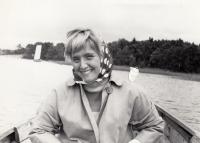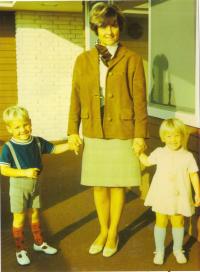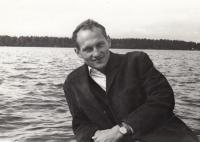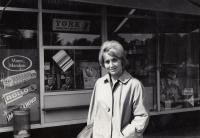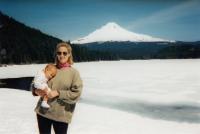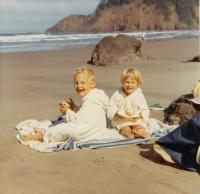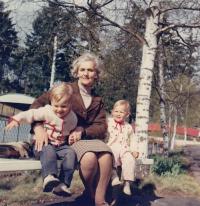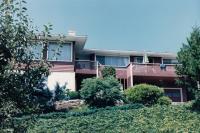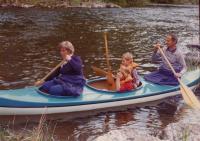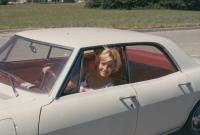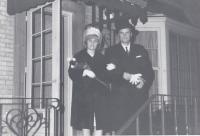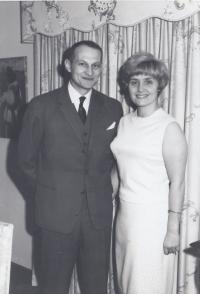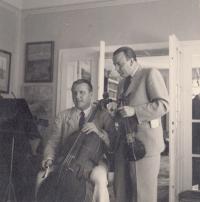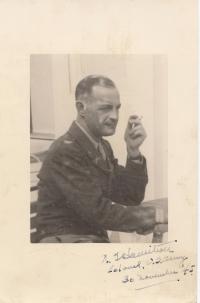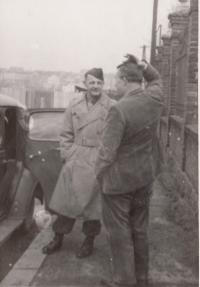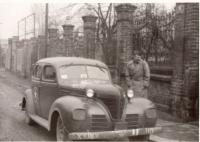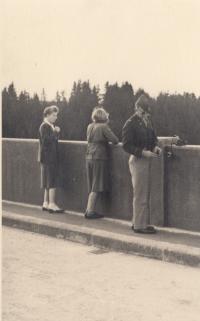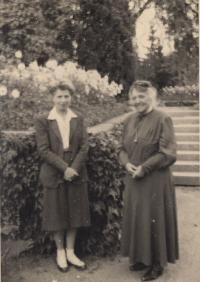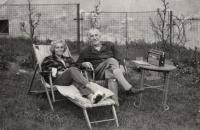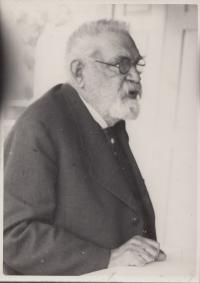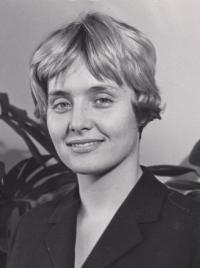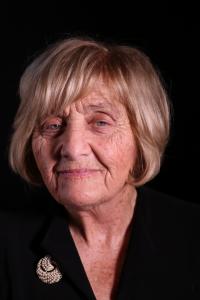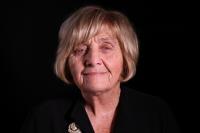You did everything you could so that I lose my daughter, my mum said during an interrogation after I emigrated.

Download image
Jana Vydrová, née Schmausová, was born on October 6, in Prague. She has a sister Helena, who is a year and a half older. Jana’s great grandfather was the important inventor František Křižík, who died when she was two. Her father, Gustav Schmaus, graduated of the music conservatory, her mother came from a business family, played tennis and rode a horse. In 1939, Gustav Schmaus and his colleague bought, from a Jewish businessman, a factory in Pilsen. In the same year they moved to Bechyně, where they spent the war relatively peacefully in the family villa. In 1945 they moved to Pilsen and saw the city being liberated by U. S. troops, with some of whom they established lifelong friendships. In 1948 her father’s business was nationalised by the communists and the family property seized. The family moved to Prague. Gustav Schmaus returned to music and played the violoncello in the Prague Philharmonic Orchestra, while her mother trained as an accountant, but was sacked after a year due to her bourgeois origin. She then worked as an emergency ambulance drive for Prague hospitals. Jana Vydrová was accepted to a professional secondary school, specialising in international relations. After her graduation exam she worked in the business department of Metalimex but was sacked after four years when it transpired that her father was not just a businessman but also a former factory-owner. In 1964 Jana and her fiancé Otakar Vydra emigrated when they were on a trip to Helsinki from a holiday in the USSR. From Helsinki they went to Sweden and the United State. In the U. S. she lived in Chicago and in the state Washington, worked as a secretary, tennis trainer and real estate agent. She raised two children. In 1985 she divorced and since her retirement in 2000 she has returned regularly to the Czech Republic. She has lived in Bechyně since 2017.
